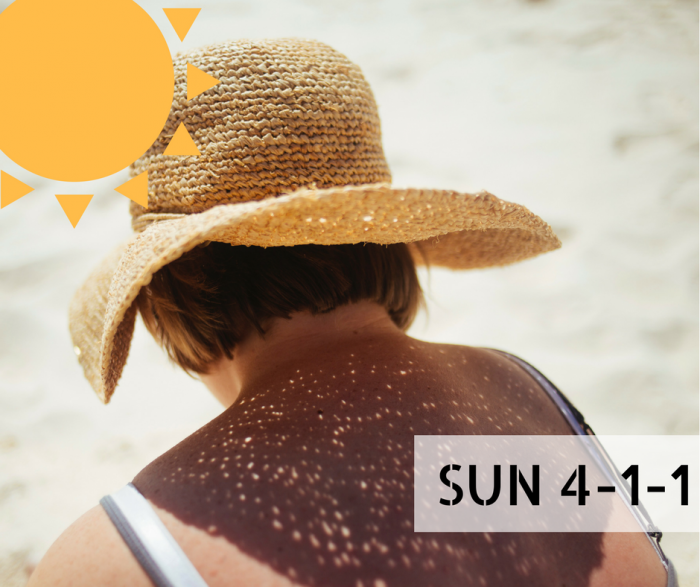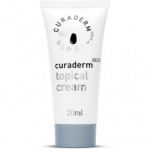SKIN CANCER – WHAT YOU SHOULD KNOW

Happy Friday!
I finally got to my post on skin cancer. This post came about because I was diagnosed with basal cell carcinoma (BCC) on my face and on my back about a month ago. The nurse called me a day after the biopsy and said, ‘You have cancer in both places and you need to have mohs surgery right away.’ Well that got me pretty well peeved because most people hearing those words ‘you have cancer’ would freak the F out. I did the first time around and did not want others going through that same feeling without more information.
I also had the BCC diagnosis a couple of years ago. After the biopsy and diagnosis, I had to have (or did I?) a larger area removed to make sure the BCC was all gone. The procedure was much rougher than I expected and left me with an inch long scar on my abdomen. It had to be done, right? Actually, I no longer think so. Not all skin cancers are the same. They are very different in fact.
DIFFERENT TYPES OF SKIN CANCER
There are three major types of skin cancer:
- Melanoma
- Squamous Cell Carcinoma (SCC)
- Basal Cell Carcinoma (BCC)
While melanoma can be deadly, the most common types of skin cancer, basal cell carcinomas and squamous cell carcinomas are highly curable. If diagnosed with BCC or SCC, you have time to discuss approaches with your doctor and to do your own research. Please note that while basal cell carcinomas do not metastasize, some squamous cell carcinomas can metastasize so be mindful of that when doing your own due diligence.
Melanoma – the really bad kind
The number of reported skin cancer cases has risen dramatically over the last 20 years and is the most common form of cancer in the United States. According to the Center for Disease Control (CDC), almost 72,000 people in the U.S. were diagnosed with melanoma and over 9000 people died from it. Almost 50% more men than woman died from melanoma. As mentioned above, melanoma is the most serious and potentially dangerous form of skin cancer. It spreads deep and metastasizes quickly to other tissues. It should be treated immediately by an experienced, trusted doctor. Melanoma afflicts mainly people with fair skin, light eyes and blonde or red hair. People with a family history of melanoma and lots of moles, birthmarks, freckles, precancerous lesions, repeated blistering sunburns before adulthood and intense sun or tanning bed exposure are all at a higher risk of having or developing melanoma. So what do we do to avoid developing skin cancer? Nowadays, we are advised to apply sunscreens and stay out of the sun. But do we really want to avoid the sun that can be so healing if respected?
It would be a shame to shun the sun
 With skin cancer on the rise, the sun has gotten a bad wrap. The sun provides us with vitamin D which helps to improve immune function, sleep and hormonal function. Vitamin D is also a natural mood enhancer and helps to prevent depression. There is a wealth of research available promoting the sun and vitamin D as a natural protector from several forms of cancer.
With skin cancer on the rise, the sun has gotten a bad wrap. The sun provides us with vitamin D which helps to improve immune function, sleep and hormonal function. Vitamin D is also a natural mood enhancer and helps to prevent depression. There is a wealth of research available promoting the sun and vitamin D as a natural protector from several forms of cancer.
So we do need the sun. I knew it! It is a beautifully natural way to heal, provide warmth and give all beings a feeling of wellbeing. Did you know that animals – who we could all learn a thing or two from- have a natural instinct to face and be warmed by the sun? The important thing to remember about the sun (and life) is not to get burned. Burns = bad, lightly pink color from the sun = good- then time to come in. Gone are the days of baby oil and the St. Tropez tan. I remember wanting to look like the Bain de Soleil lady. I still have that jingle in my head. Now you can too 😉
So let’s say you are diagnosed with basal cell carcinoma like me. That would be unfortunate news but do you panic? Do you do cut out the area immediately? Do you wait? Do you try another approach? There are some great natural options that I plan to try.
Eggplant extract for skin cancer
 Dr. Oz and Dr. Mercola have been reporting on the success of a topical cream called BEC5 to treat basal cell and squamous cell carcinomas in a natural, non-invasive way. BEC5 is derived from plants in the solaceae family – eggplant, tomato, potato and bell peppers, which are nightshade vegetables. Clinical trials have been conducted in Australia and the UK confirming BEC5’s efficacy in treating BCC and SCC cancers. Dr. Mercola reported on the benefits of BEC5 cream and later appeared on the Dr. Oz show in 2012. Click here for a link to Dr. Mercola’s article on skin cancer and BEC5 and here to access Dr. Oz’s article on the subject. Dr. Mercola calls it ‘a natural safe drug.’ It’s not cheap at about $150 per tube but that’s a fraction of the cost of traditional treatment. If you have been diagnosed with basal cell or squamous, DO NOT panic. DO talk to your doctor and conduct your own research to decide what is the best protocol for you.
Dr. Oz and Dr. Mercola have been reporting on the success of a topical cream called BEC5 to treat basal cell and squamous cell carcinomas in a natural, non-invasive way. BEC5 is derived from plants in the solaceae family – eggplant, tomato, potato and bell peppers, which are nightshade vegetables. Clinical trials have been conducted in Australia and the UK confirming BEC5’s efficacy in treating BCC and SCC cancers. Dr. Mercola reported on the benefits of BEC5 cream and later appeared on the Dr. Oz show in 2012. Click here for a link to Dr. Mercola’s article on skin cancer and BEC5 and here to access Dr. Oz’s article on the subject. Dr. Mercola calls it ‘a natural safe drug.’ It’s not cheap at about $150 per tube but that’s a fraction of the cost of traditional treatment. If you have been diagnosed with basal cell or squamous, DO NOT panic. DO talk to your doctor and conduct your own research to decide what is the best protocol for you.
Self-check and regular doctors visits
Check your skin regularly including under your hair and areas that never see the sun for moles and skin abnormalities. Here’s a link to Dr. Oz’s site for information self-exams how to track moles.Visit your doctor for regular full-skin checks. You may have to have a biopsy – which is a piece of cake – a little local anesthesia and a sample is taken to be examined. If it has been determined that you have skin cancer, try to remain calm. Find out what kind of skin cancer you have, do your research and go from there.
Sunscreens – when to use, when not to use and what kind to use
Protecting oneself from the sun is important to prevent burning and overexposure. Consider avoiding the sun when the rays are the strongest between 10 am and 3 pm. Protect the face with a hat and sunglasses. Michael Holick, M.D., Ph.D., is an expert on vitamin D and author of The UV Advantage (iBooks, 2003). Dr. Holick recommends spending at least a half-hour every day in the sun before applying sunscreen.
Most of the sunscreens on the market are toxic and should be avoided at all costs. Wellness Mama wrote a great post on the sun and sunscreens. She even included a recipe for natural sunscreen. I just made a batch for my El Camino trip (which starts tomorrow! OMG!) and so far I love it. Note, when making your own sunscreen, google search first to make sure your chosen essential oils will not increase your sensitivity to the sun. Many citrus oils, in particular, increase sun sensitivity and are not advised. Lemongrass is surprisingly on the ok to use list as in it does NOT increase one’s sensitivity to the sun.
What’s the rest of the unbiased public doing?
I am a huge fan of www.earthclinic.com, a worldwide blog where regular people like you and me report their experiences with natural cures and comment on other’s experiences. The site has gained in popularity over the past few years. You will see more adverts and a more detailed opening explanation before you get to the personal accounts of natural treatments but it is still an excellent resource. I read success stories from people using BEC5, hydrogen peroxide, apple cider vinegar, baking soda with coconut oil and plant called Petty Spurge for basal cell carcinoma. These substances all have properties to fight cancer, heal and repair. Remember, with natural cures, because you are healing the root cause not the symptom, the healing and final great result takes longer. People who have used BEC5 cream with success report the area looking worse before it finally crusts up and flakes off to reveal perfectly healed skin. Patience is a virtue! One woman reported that her doctor was not aware of Curaderm BEC5 cream but conducted his own research, was happy with the clinical trials and gave her the go ahead to use BEC5.
I focused my research on basal cell carcinoma in trying to find my own solution. Always conduct your own research based on your unique situation and discuss with your doctor. BCC and SCC grow slowly so you at least have some time to find the right path for your own healing if you have been diagnosed with either of these skin cancers. DO NOT PANIC!
Thanks for reading my post today. I hope this information was helpful.
Nota bene:
I leave tomorrow for a 6 week trip to France, Spain and Portugal to complete El Camino de Santiago. My posts may not be weekly while I’m away but I will be back to my regular routine starting Friday, June 16th.
If you are interested in following this Camino journey, check us out on Instagram – mybelavie and pelican_finn. While I am fairly new to Instagram, I expect to come back from this trip an expert.


Hi Susie!
So glad you pulled through this ordeal and amazed that you’ll be undertaking El Camino de Santiago pilgrimage. I’ll definitely be checking out your instagram account and looking forward to your posts about it.
Abrazos,
Astrid G.
P.S.: love your blog!
Great post! Thanks, Susie!
I’m looking forward to hearing/seeing the el Camino adventure. Be well!
Thank you for the encouragemt. I will be seeing my doctor this Wed to discuss the cream. In the meantime, I am using the eggplant apple cidar recipe. I am not looking firward to the site getting worse, as my site is very small, but It beats surgery. How long to you keep the cram on?
Hi Donna, I am glad you are considering an alternative treatment. If you have BCC, you can keep monitoring your carcinoma to make sure it doesn’t spread and use the cream as maintenance. BCC is not a carcinoma that does not normally spread. Keep in touch.